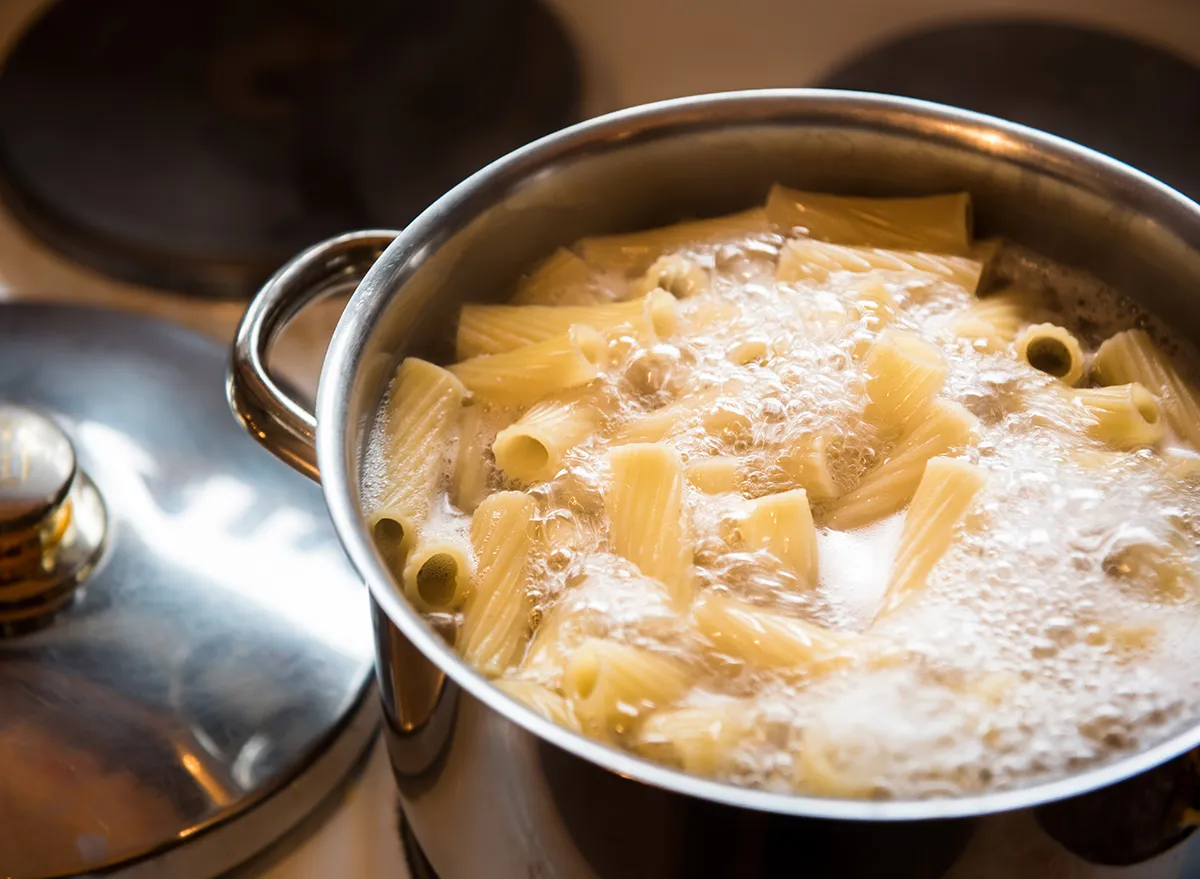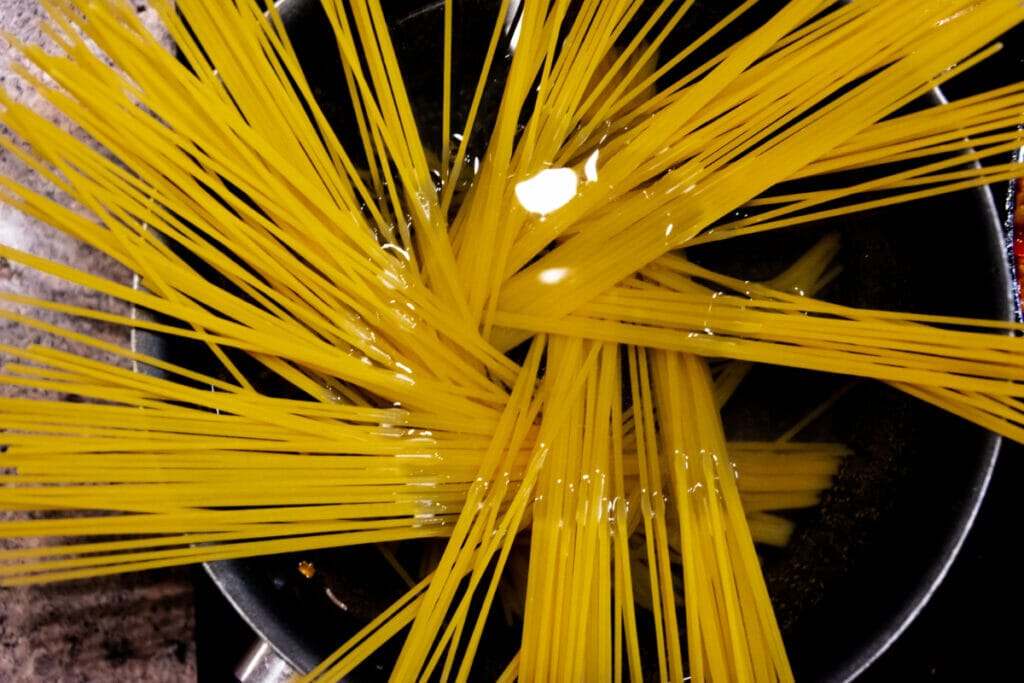- Make sure your water is boiling before you add your noodles.
- Stir your pasta. A lot.
- DO NOT add oil to your pasta if you plan on eating it with sauce.
- Rinse your cooked pasta with water — but only if you’re not eating it right away.
Since pasta is so widely consumed, many people discover that their final product is a mass of noodles rather than the individually delicious strands of spaghetti that make life worthwhile.
You have a problem if you can stick your fork into the cooked pasta pot and all of the pasta emerges at once.
Fortunately, it’s very simple to prevent spaghetti noodles from sticking together (this also holds true for other types of pasta, though spaghetti poses the greatest challenge).
Community Q&ASearch
Ask a Question 200 characters left Include your email address to get a message when this question is answered.
Add salt to the pasta water.

Despite the fact that it is a simple step that you shouldn’t skip, according to our chef sources, it probably won’t prevent the noodles from sticking together.
“Salting the water does not keep the noodles from sticking, but it will give your pasta more flavor,” says executive chef Luca Corazzina of 312 Chicago.
Chef Matt Sigler of Il Solito in Portland, offers a similar viewpoint. “It doesnt keep the noodles from sticking, but it is important to introduce this salt to the noodle for flavor,” Sigler says. “Always salt the water.”
Contrary to popular belief, salt does not prevent sticking and does not actually hasten the boiling of water. However, it does add flavor, so you should still incorporate this step into your regular pasta preparation routine.
Executive Chef Walter Pisano of Tulio in Seattle recommends waiting until the water is boiling before adding the salt. But if you do add the salt in before the water is boiling, it probably wont make a huge difference.
“Adding salt before the water is boiling does bring the boiling point down, but it takes a lot of salt to make a difference in the boiling point,” says executive chef Dan Matthiesen of Bookstore Bar & Café in Seattle. “So adding it before or after boiling it has the same result.”
Add Salt to the Water
Although it won’t always prevent your pasta from sticking, salt is a crucial component of cooking pasta for flavor.
Although it’s unclear whether using salted boiling water will keep the noodles from sticking together more than plain boiling water, since all chefs advise using a lot of salt in your pasta water, it can’t hurt to give it a shot.

FAQ
Why are my spaghetti noodles sticking together?
You have to get rid of that starchy water right away to stop it from sticking. Don’t rinse your spaghetti. It will cause it to clump together because the pasta’s starch dries and makes it sticky. Toss it with warm sauce immediately after you drain it.
How do you keep pasta from sticking together before cooking?
Use semolina, corn, or rice flour To prevent your dough from sticking together, coat freshly cut pasta in semolina, corn, or rice flour right away. Whatever you do, DO NOT use regular flour. That’s right, I’ve warned you.